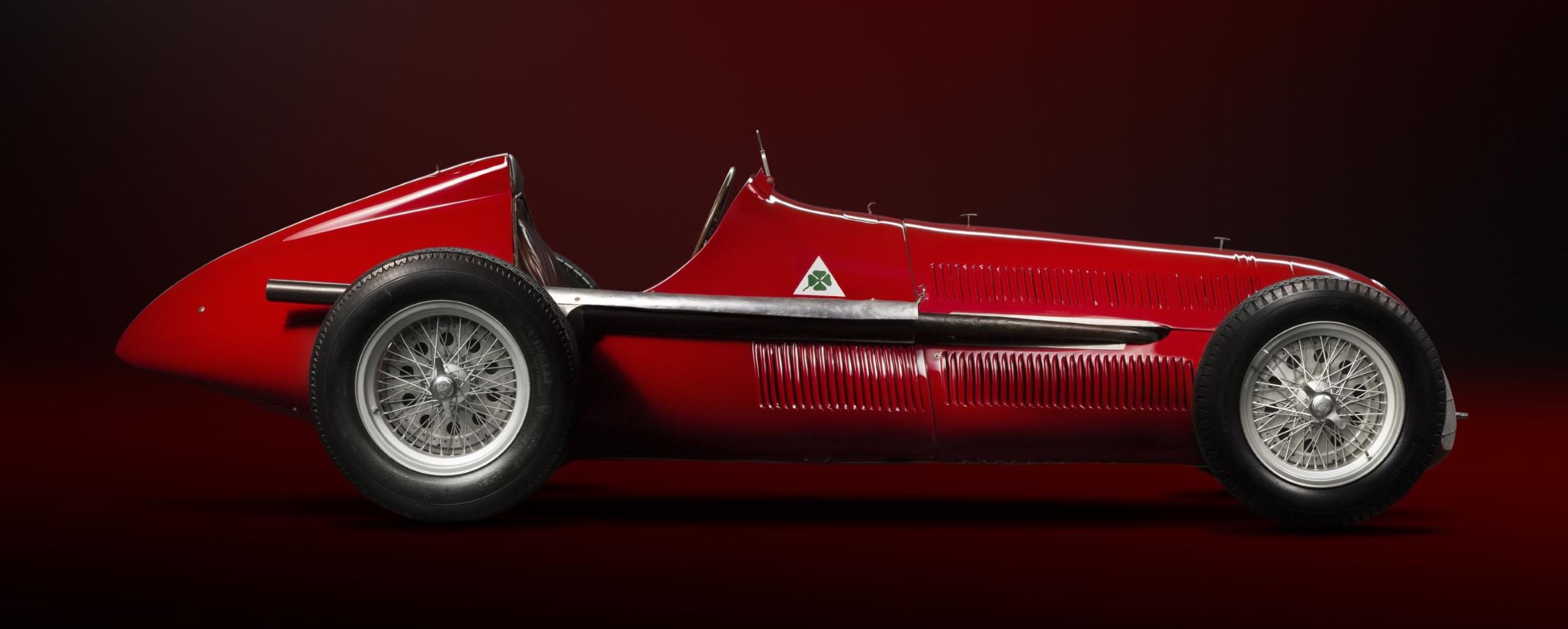
The long and exciting history of Formula 1 began in 1950, when the sport went global with the first “Formula 1 World Championship”, which was almost exclusively staged on European circuits. The first race took place on the bends of Silverstone, the time-honoured location of the Grand Prix of Great Britain and still one of the most important tracks on the calendar, on 13 May, 69 years ago. Since then the automotive world has changed radically but two factors remain the same; the enthusiasm of the public and the presence of Alfa Romeo on the Grand Prix start line.
At the first race, the Alfa Romeo racing team presented four 158 single-seaters, driven by Giuseppe “Nino” Farina, Juan Manuel Fangio, Luigi Fagioli and Reg Parnell, the latter as a token of respect towards the host country. The cars took the first four places in the qualifiers and occupied the entire front row of the grid.
Looking back at those days, Alfa Romeo engineer Giuseppe Busso once declared that the real problem for the team of the three “F”s – Farina, Fangio and Fagioli – was to establish the order of the podium. The Alfa Romeo 158 delivered 350hp and touched a top speed of 290km/h. Nino Farina on that momentous 13 May took pole position, the fastest lap and the race.
By the end of the championship the 158 had won six of the seven races valid for the ranking, having deserted the Indianapolis 500 along with all of the European manufacturers. Alfa Romeo remained undefeated after the first race in the Silverstone GP, winning the first three places in the ranking. Nino Farina was the first champion of the newly formed Formula 1. Success was repeated in the following year, when the 159 single-seater won the world title again, this time with champion driver Juan Manuel Fangio behind the wheel.
The Alfa Romeo 158 was produced from 1937 to 1940, and again from 1947 to 1950.
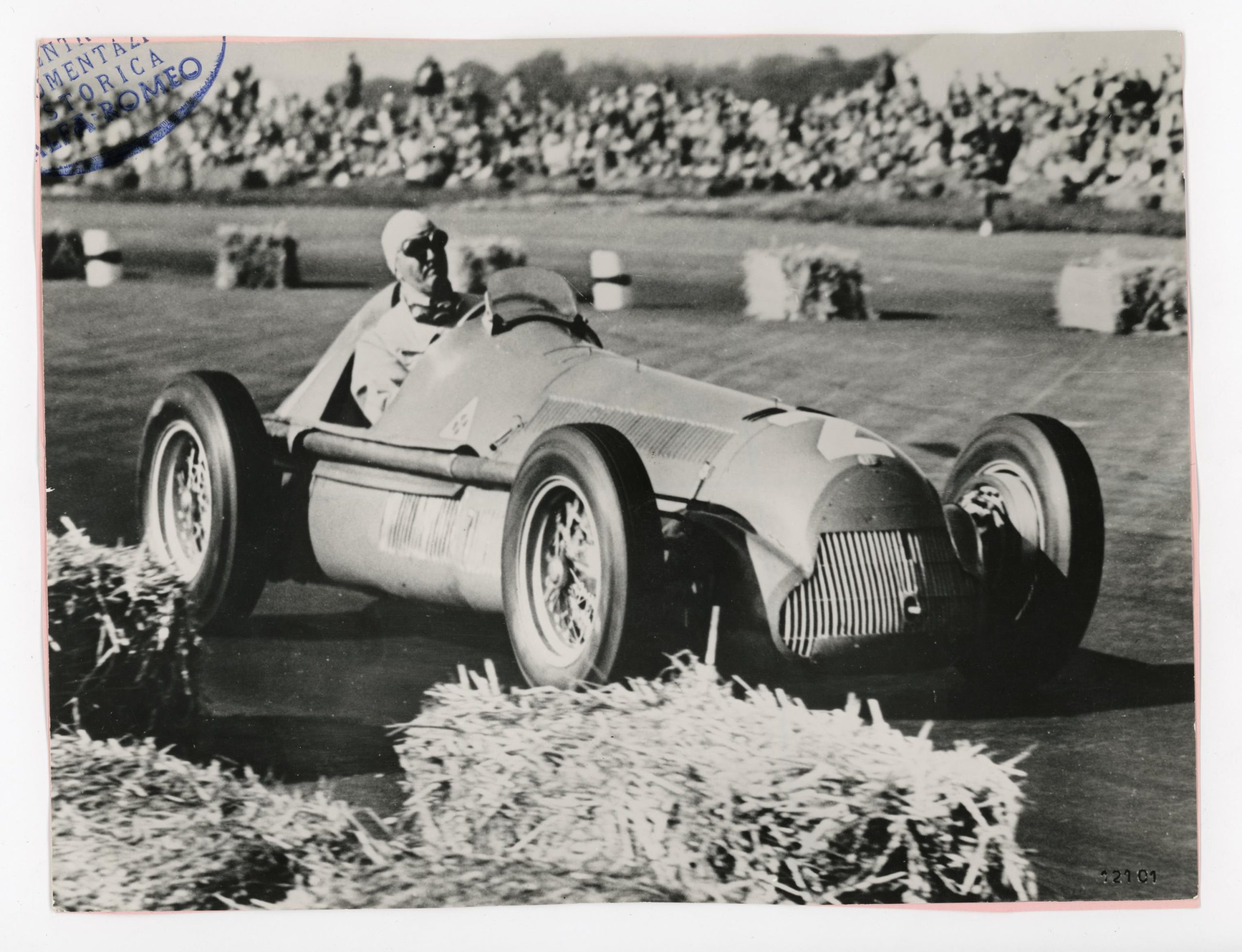
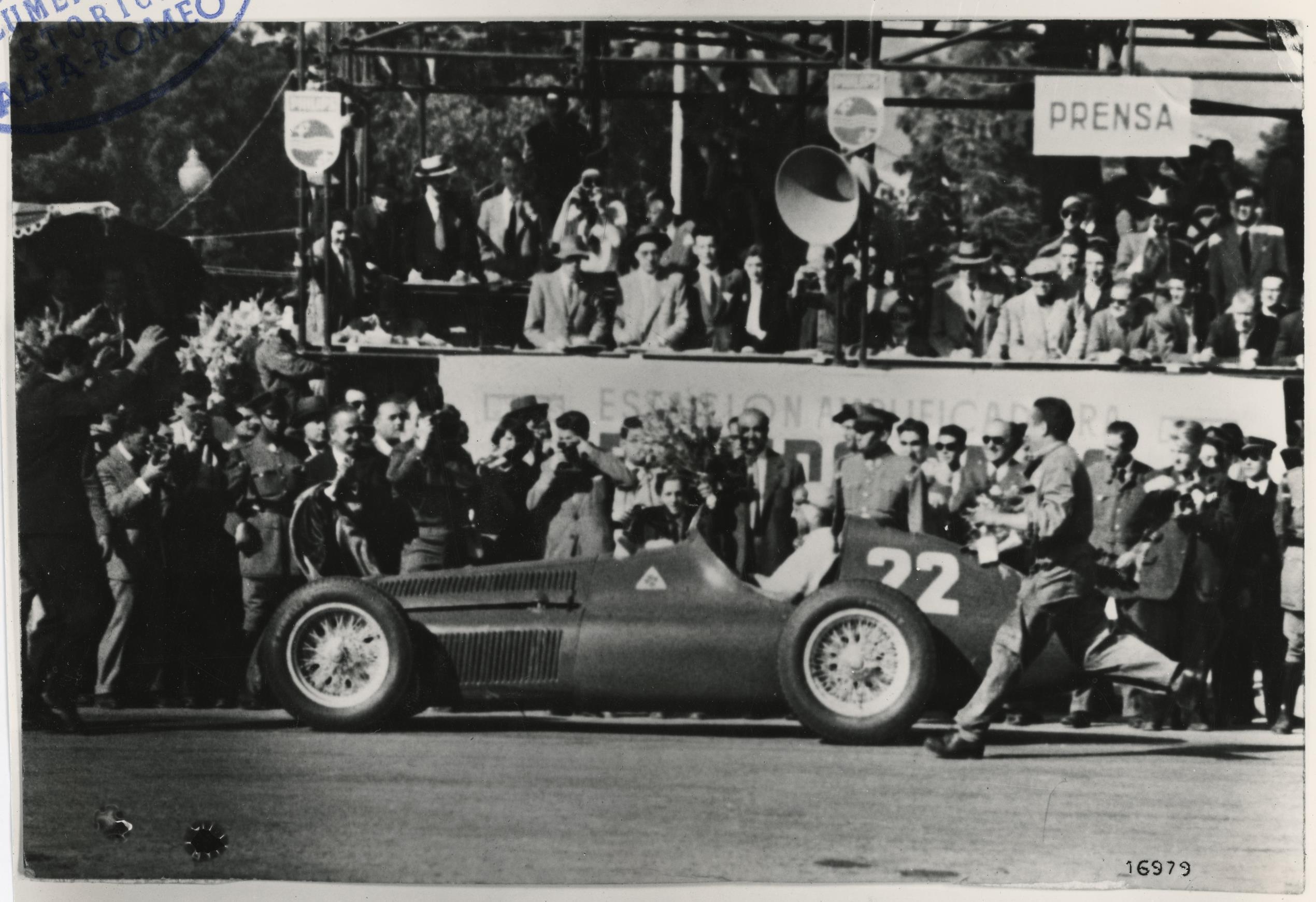
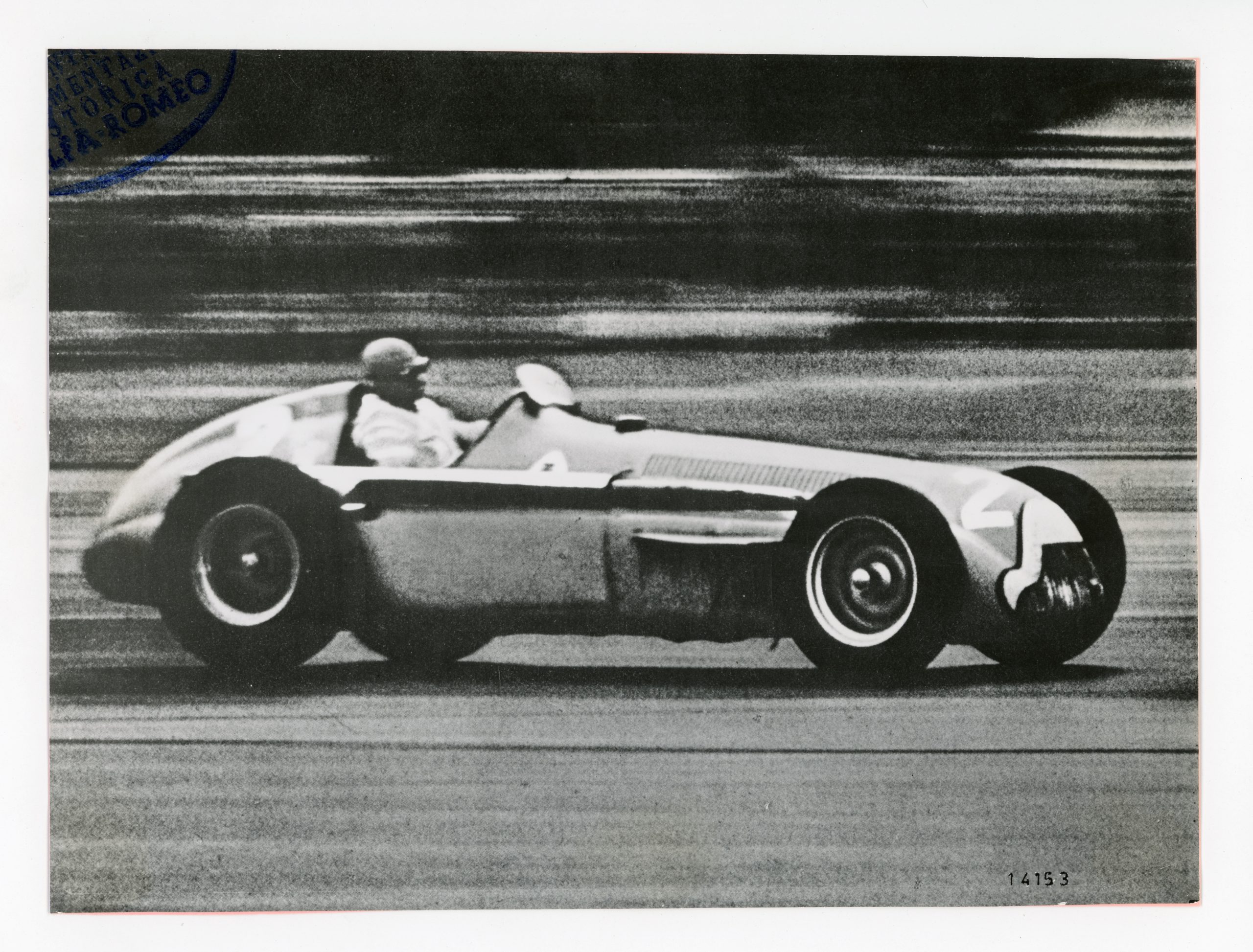
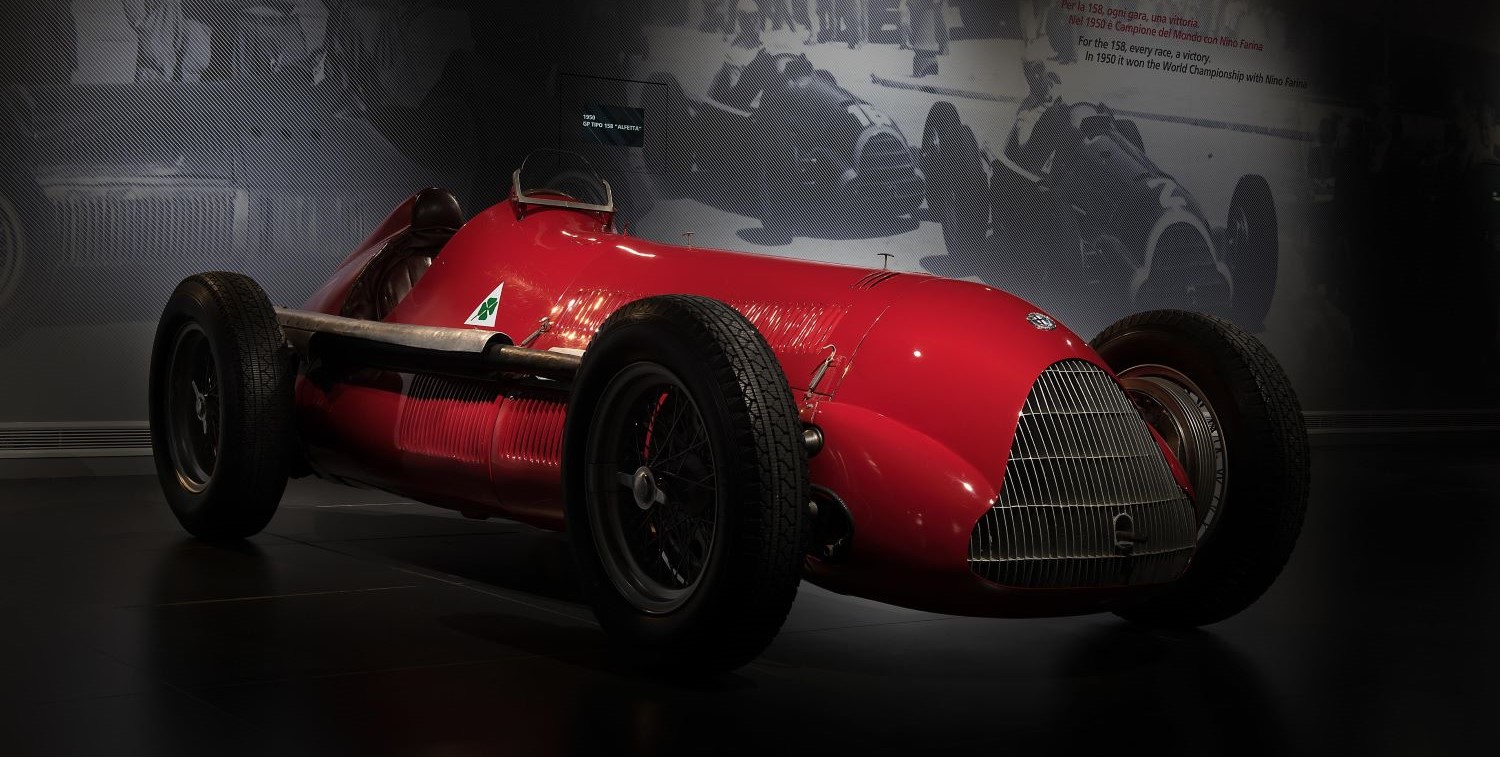
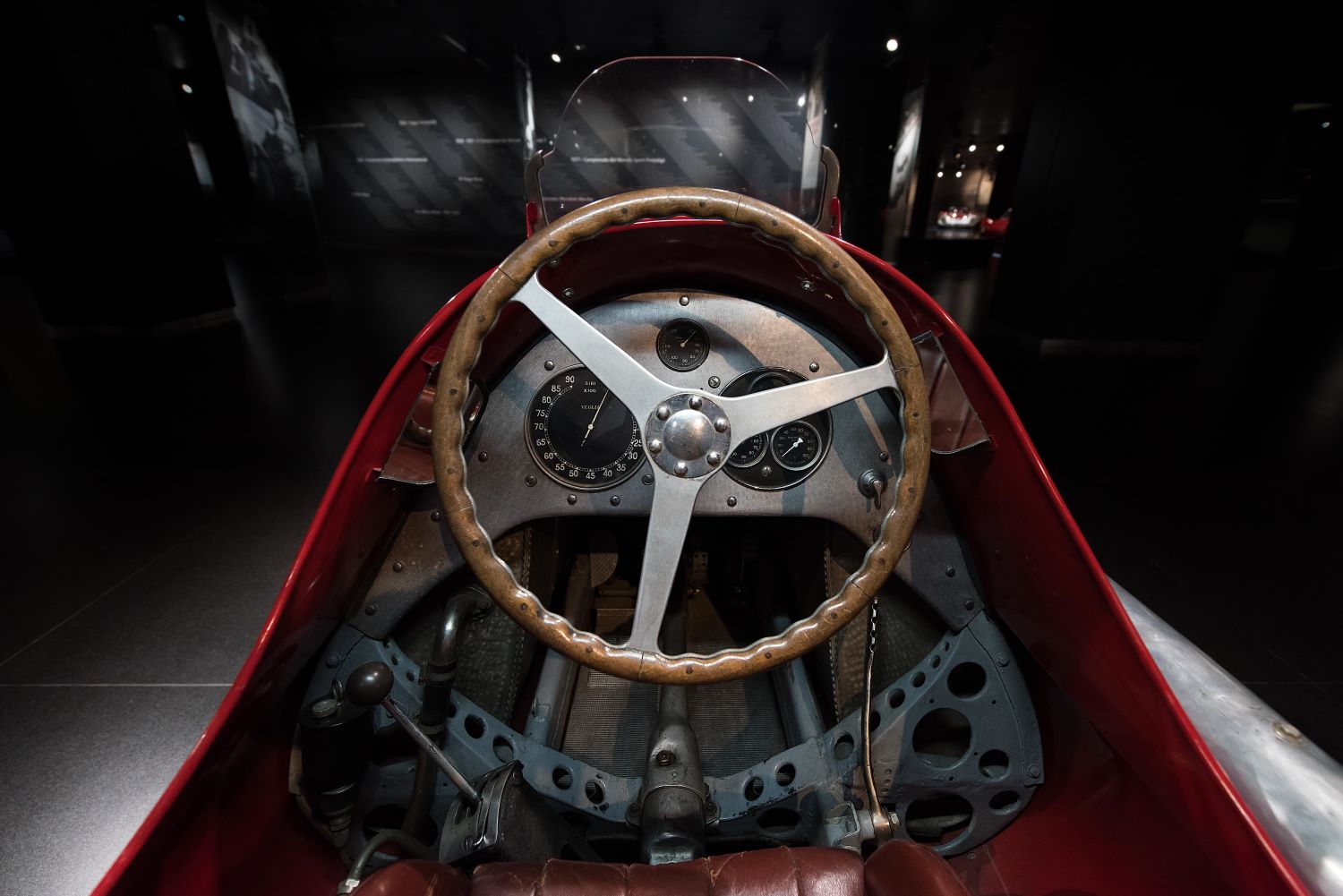
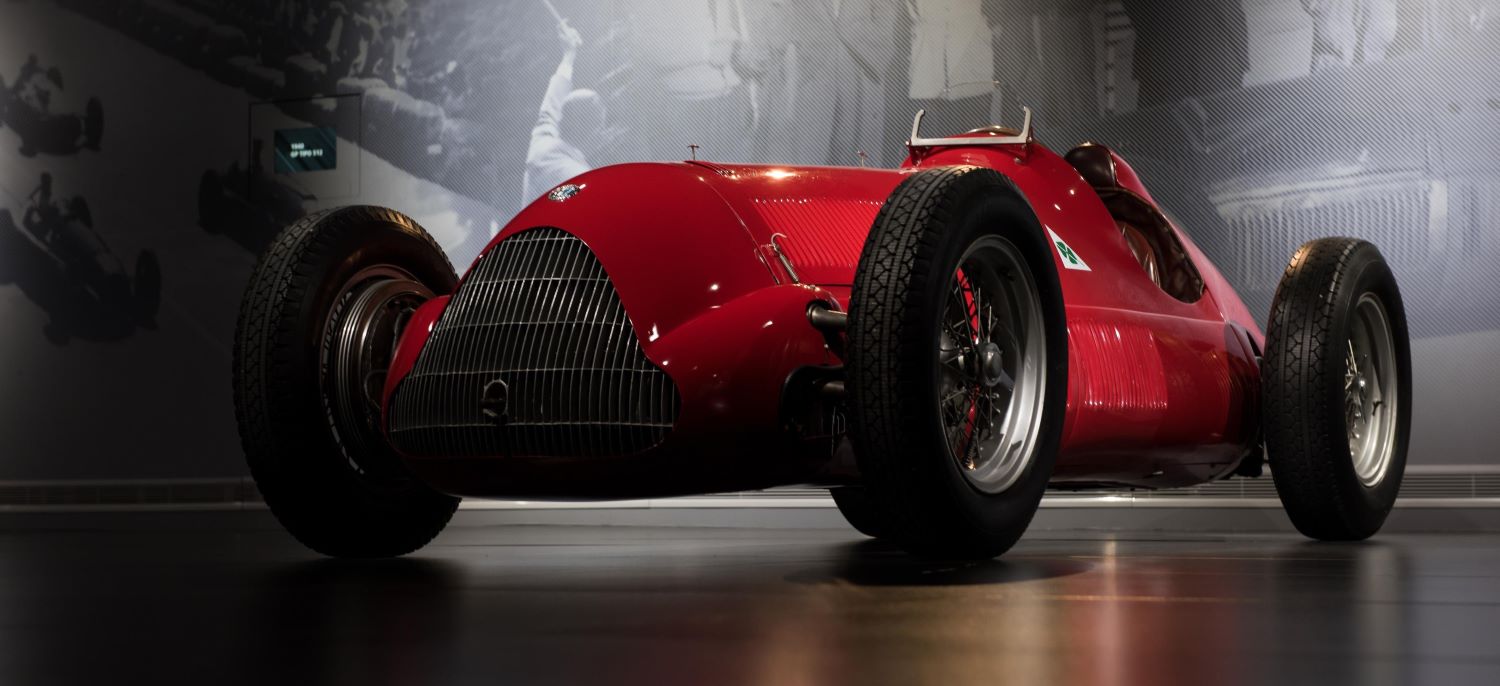
Alfa Romeo started motor racing almost immediately after it was founded. A.L.F.A. ventured into motor racing in 1911, with drivers Franchini and Ronzoni competing in the Targa Florio with two 24 HP models. The marque’s first success came in 1913 when Nino Franchini finished second in Parma-Poggio Berceto race with a 40-60HP. Giuseppe Merosi built a very advanced racing car in 1914, which was named “Grand Prix”. In 1920 Giuseppe Campari won the race at Mugello with a 40-60HP, whilst Enzo Ferrari was second in Targa Florio in the same year. A year later Giuseppe Campari won at Mugello again. Ugo Sivocci won the 1923 Targa Florio with an RL and Antonio Ascari took second. Sivocci’s car was painted with the green cloverleaf on a white background that was to become Alfa’s good luck token.
Alfa Romeo participated in Formula One, both as a constructor and engine supplier, from 1950 to 1987. The works Alfa Romeo team dominated the first two years of the Formula One World Championship, using the pre-war Alfetta, but withdrew from Formula One at the end of 1951. During the 1960s, several minor F1 teams used Alfa Romeo straight-4 engines and a V8 Alfa Romeo appeared in McLaren and March cars in the early 1970s. The Brabham team used Alfa Romeo engines from 1976 to 1979, foreshadowing a return by Alfa Romeo as a constructor from 1979 to 1985.
Since then the sporting legend of Alfa Romeo has seen a string of victories and top-three finishes in many international championships, including Formula 1. The “biscione” emblem is back and after continuous progress and eighth place in the team’s comeback season, this year the new “Alfa Romeo Racing” team will continue to bring the tradition of technical excellence and Italian style, characteristic of the Alfa Romeo brand, to the pinnacles of motorsport competitions.
The “Alfa Romeo Racing” team will be lining up Giovinazzi Antonio, the first Italian driver to regularly appear at the wheel of a Formula 1 for eight years, and 2007 World Champion Kimi Räikkönen, who scored points in the first two races. So continues the legend of the Quadrifoglio, the green cloverleaf emblem that since 1923 has identified the highest performing Alfa Romeo models.
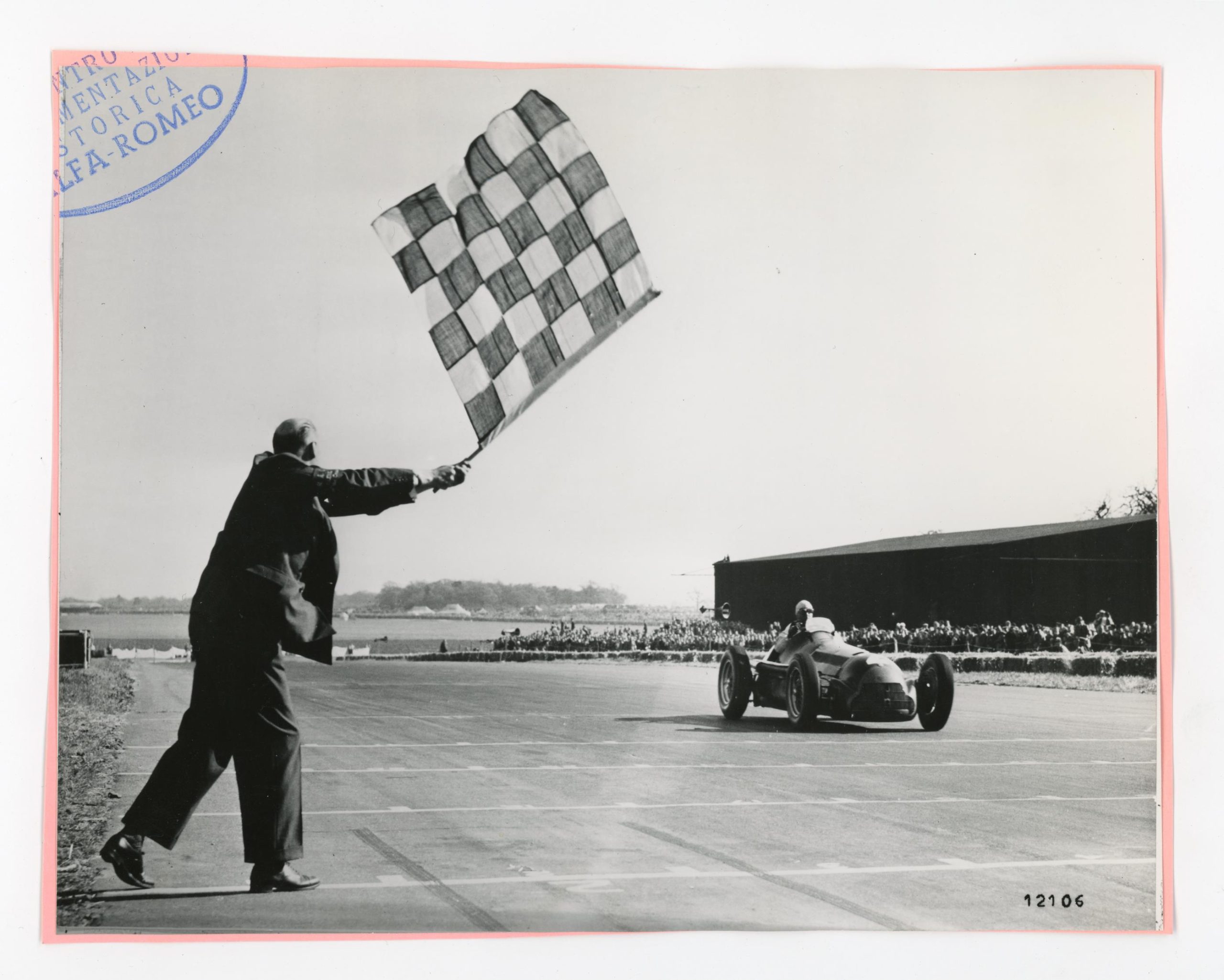
Alfa Romeo has won the following major victories and championships:
5 – World Championships (1925, 1950, 1951, 1975, 1977)
11 – Mille Miglia (1928, 1929, 1930, 1932, 1933, 1934, 1935, 1936, 1937, 1938, 1947)
10 – Targa Florio (1923, 1930, 1931, 1932, 1933, 1934, 1935, 1950, 1971, 1975)
4 – 24 Hours of Le Mans (1931, 1932, 1933, 1934)
15 – Australian Sports Sedan Championship (1980, 1981, 1994, 1998, 1999, 2001, 2002, 2005, 2007, 2011, 2014, 2015, 2016, 2019)
19 – European Touring Car Championships (1966, 1967, 1969, 1970, 1971, 1972, 1976 (Divisions 1 and 2), 1977 (Divisions 1 and 3), 1982, 1983, 1984, 1985, 2000, 2001, 2002, 2003, 2004)
9 – Makes Championship
4 – Drivers’ Championships
10 – Italian F3 Championships (1972, 1979, 1981, 1982, 1983, 1984, 1986, 1987, 1989, 1990)
10 – FIA European Formula 3 Championship (1980, 1981, 1982, 1983, 1984, 1985, 1986, 1987, 1989, 1990)
5 – Formula 3 Sudamericana Championship (1988, 1989, 1990, 1991, 1994)
8 – Mexican Formula Three Championship (1990, 1991, 1992, 1993, 1994, 1995, 1996, 1997)
5 – European F3 Cups (1985, 1986, 1987, 1989, 1990)
8 – Swiss Formula Three Championship (1983, 1989, 1990, 1991, 1992, 1998, 1999, 2002,)
7 – French F3 Championships (1981, 1983, 1984, 1985, 1987, 1988, 1989)
3 – Chilean Formula Three Championship (1991, 1992, 1993)
2 – German F3 Championships (1984, 1989)
2 – Austria Formula 3 Cup (1988, 1992)
2 – Swedish Formula 3 Championship (1987, 1988)
1 – Brazilian Formula Three Championship (1989)
6 – Coupe des Alpes (1956, 1958, 1960, 1963, 1964, 1966)
3 – Giro d’Italia automobilistico (1954, 1988, 1989)
2 – Trans-Am Championships (1966, 1970)
1 – Deutsche Tourenwagen Meisterschaft (DTM) (1993)
2 – British Touring Car Championship (BTCC) (1983, 1994)
5 – Spanish Touring Car Championships (1988, 1991, 1994, 1995, 1997)
2 – French Touring Car Championships (1983, 1984)
6 – Italian Superturismo Championship (1988, 1992, 1998, 1999, 2003, 2004)
7 – European Historical Gran Turismo Championships
4 – European Classic Touring Car Championships
3 – Bathurst Unique Fuel Championships
1 – Intereuropa Cup (1950)
1 – European Touring Car Cup (2005)

You must be logged in to post a comment.